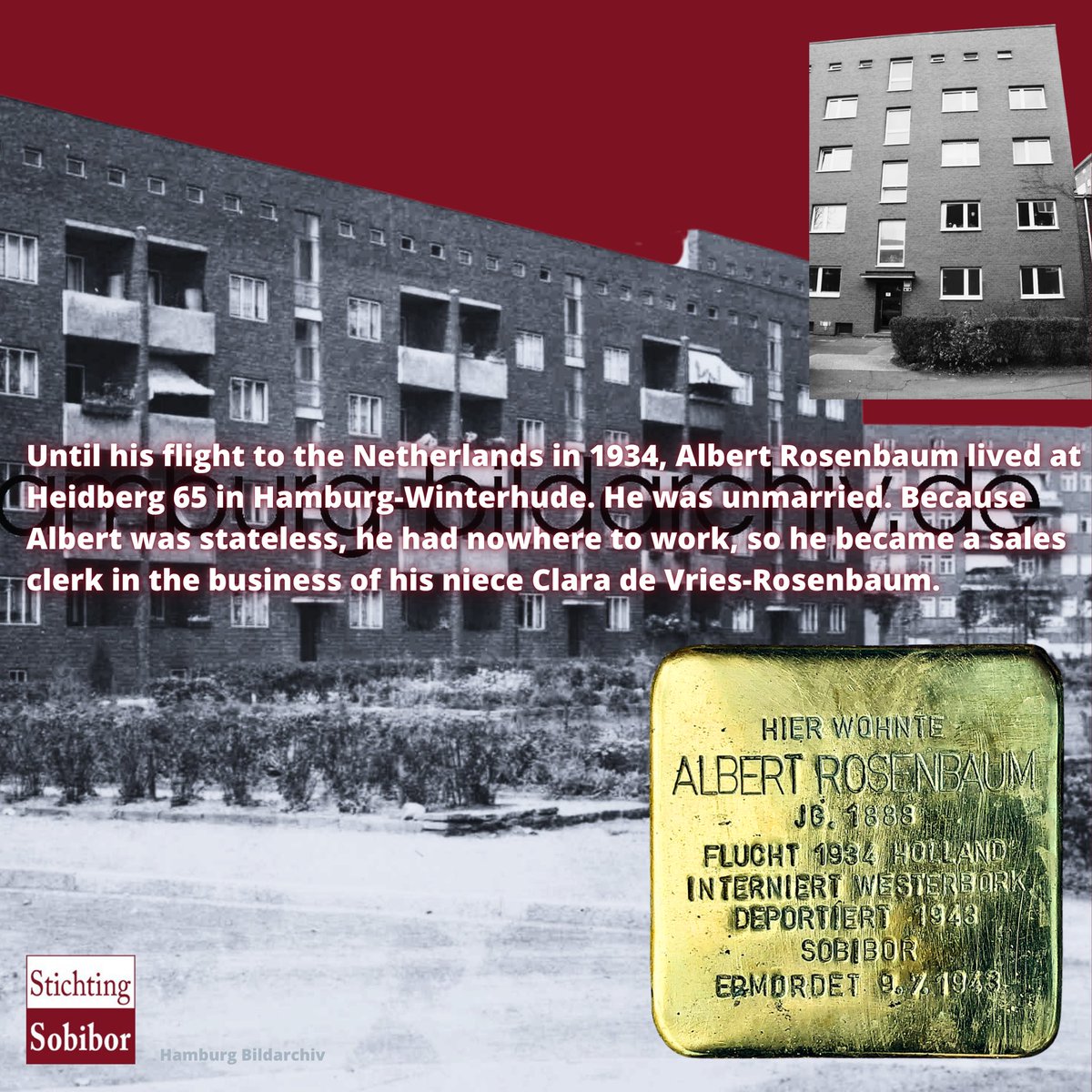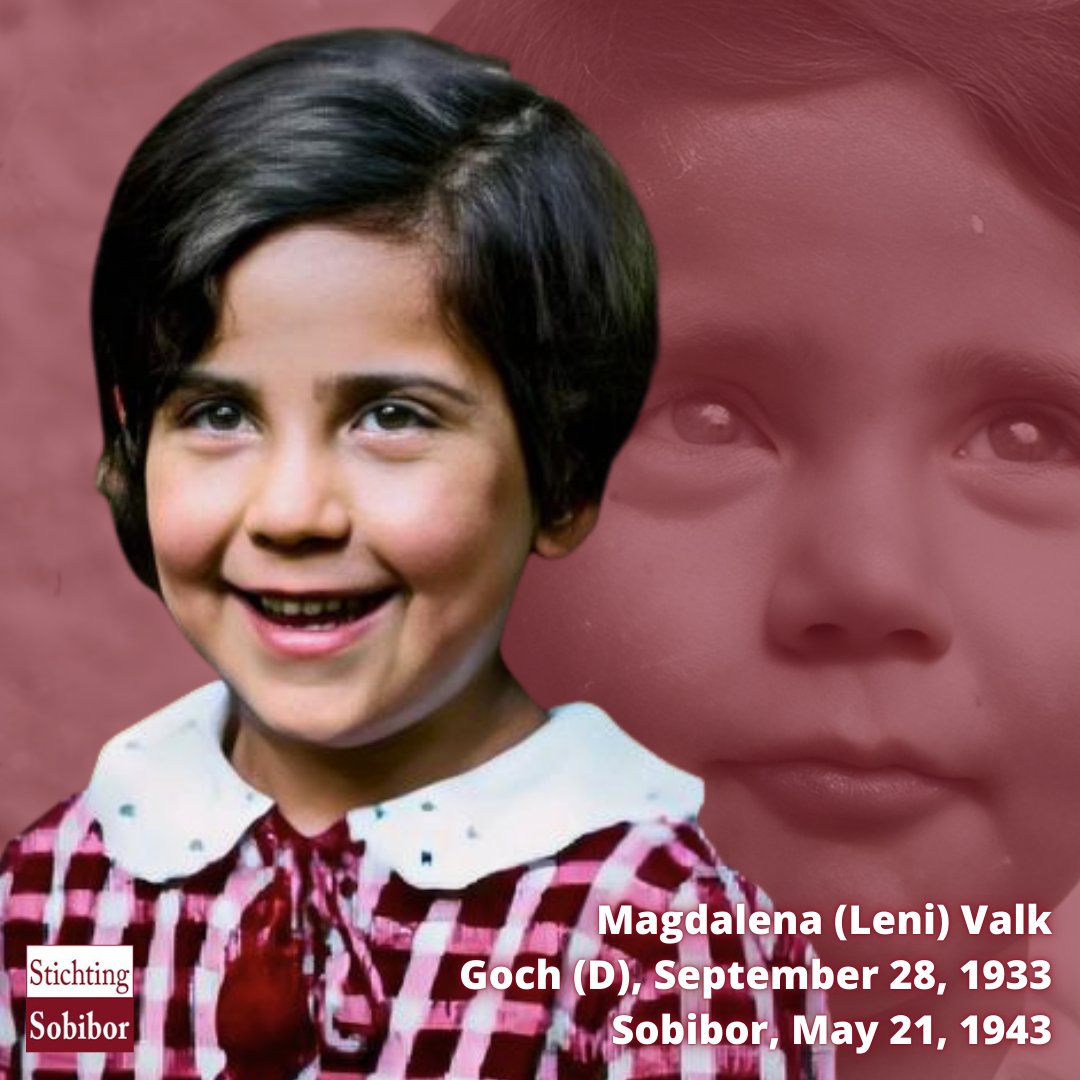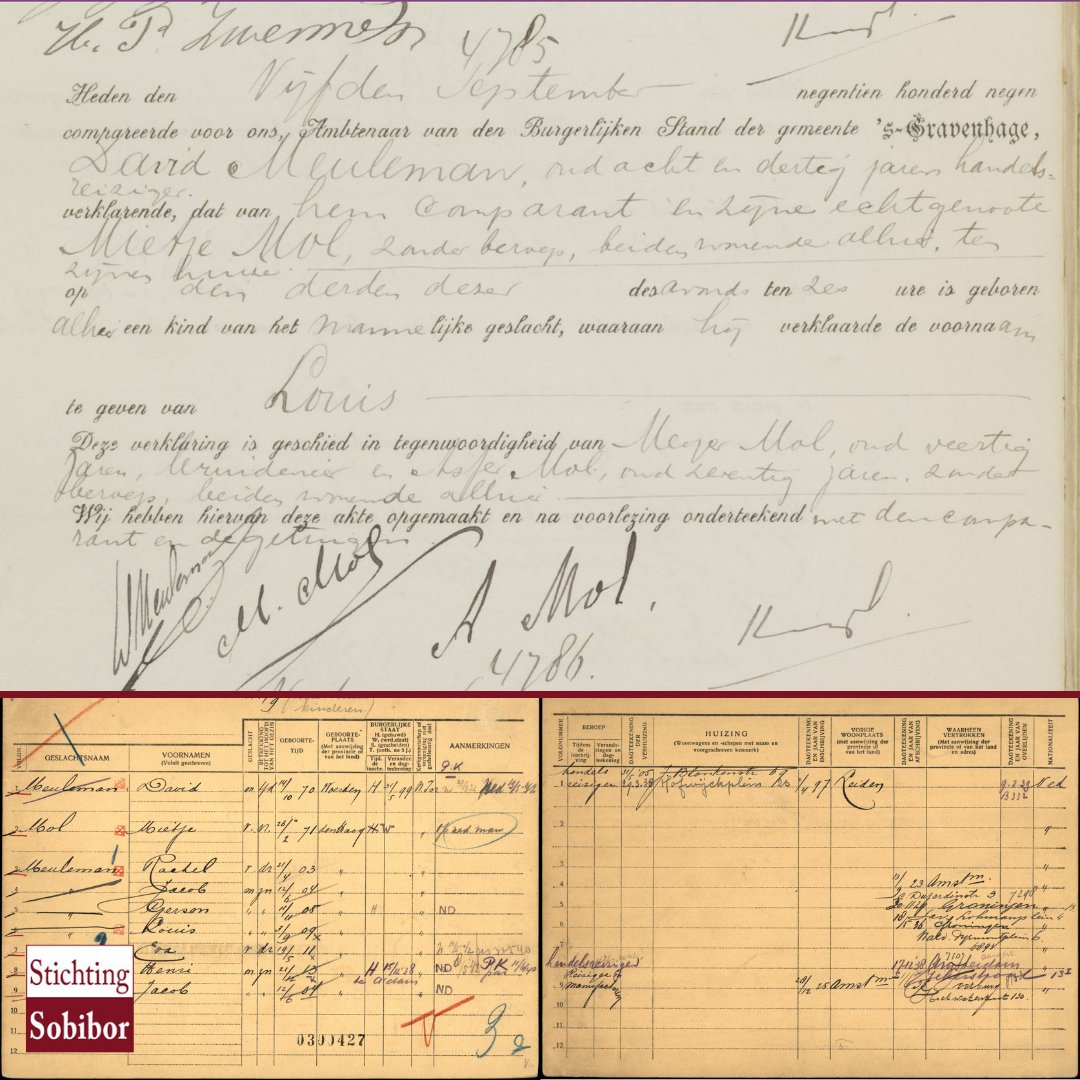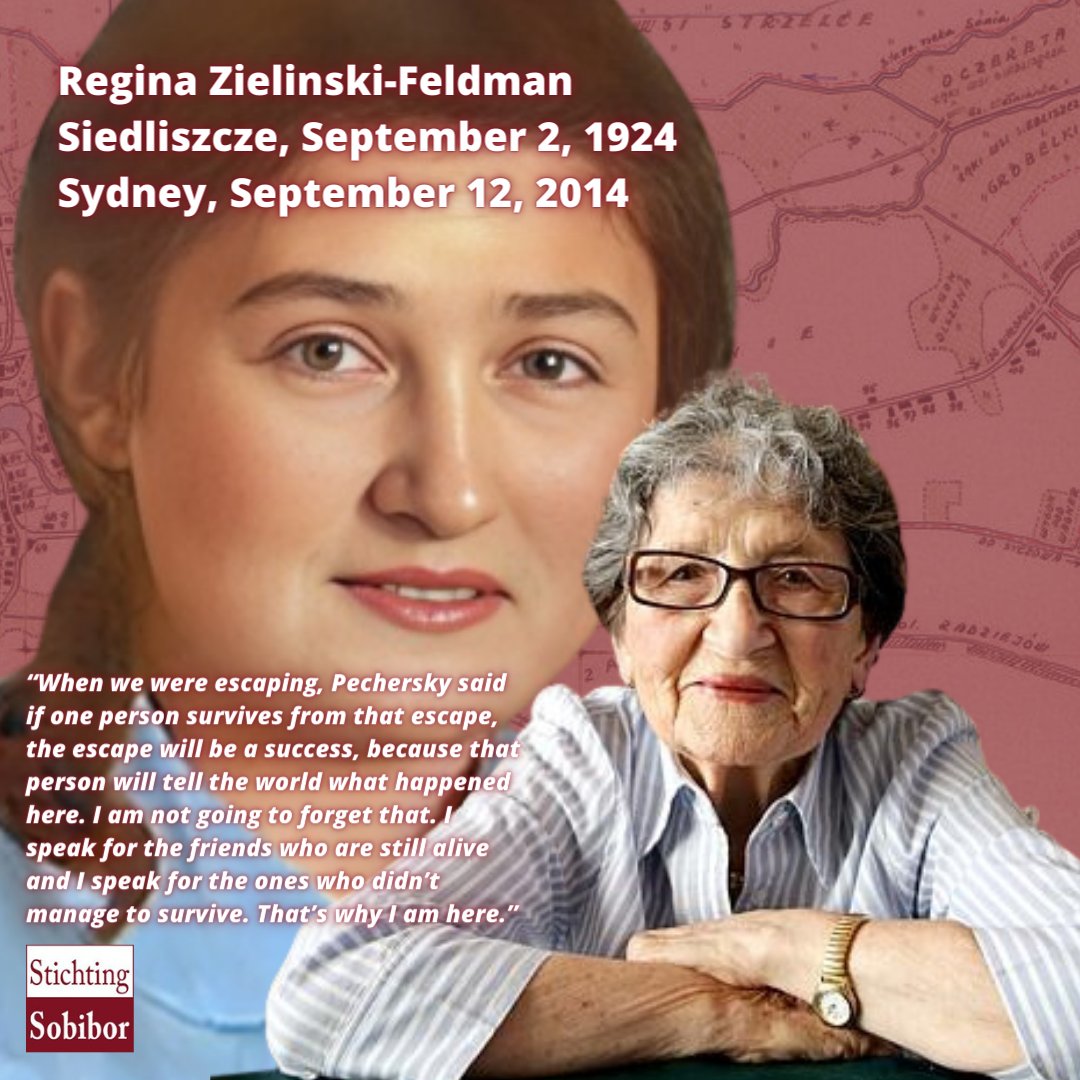11.05.1943 | 11th transport with 1446 deportees from
@kampwesterbork to #Sobibor | 1 survivor (Jozef Wins)
Rebekka and Aaron Meijers from Hengelo had been in barracks 67 in Westerbork as criminal cases since May 6.
Who were they? And what did they write on May 6? 👇🏼 /1
@kampwesterbork to #Sobibor | 1 survivor (Jozef Wins)
Rebekka and Aaron Meijers from Hengelo had been in barracks 67 in Westerbork as criminal cases since May 6.
Who were they? And what did they write on May 6? 👇🏼 /1

Aron dealt in all sorts of things (cattle, slaughter, rags, trade, cow hides, rabbit and mole skins for fur processing) and everyone knew him and he everyone. Together with Rebekka, he had 4 children: Leo, Jaap, Rosa and Nanny. /2
In the fall of 1942, Bekka and Aron went into hiding, after which a search warrant was issued.
On May 2, 1943, they were arrested, after which they were placed as criminal cases in barracks 67 in Camp Westerbork. /3
On May 2, 1943, they were arrested, after which they were placed as criminal cases in barracks 67 in Camp Westerbork. /3

Jaap, together with sister Nanny, was in hiding in a pig shed on the Rupert family's farm on Spinnersweg between Hengelo and Borne. Rosa went into hiding in Friesland with the de Jong family during the war. They all survived. /4
Shortly before, their eldest son Leo was killed by the resistance in Voerendaal together with his fiancée Alie Frankenhuis. They threatened (presumably out of desperation) to betray other people in hiding. The resistance group was later rounded up, killing all those in hiding. /5 

On the day of their arrival in Westerbork, they wrote a card to their old neighbors, the Horstink family, who is a blacksmith next to their house in Hengelo.
They are upset by Leo's murder. So at their hiding place they have heard what happened to Leo. /6

They are upset by Leo's murder. So at their hiding place they have heard what happened to Leo. /6
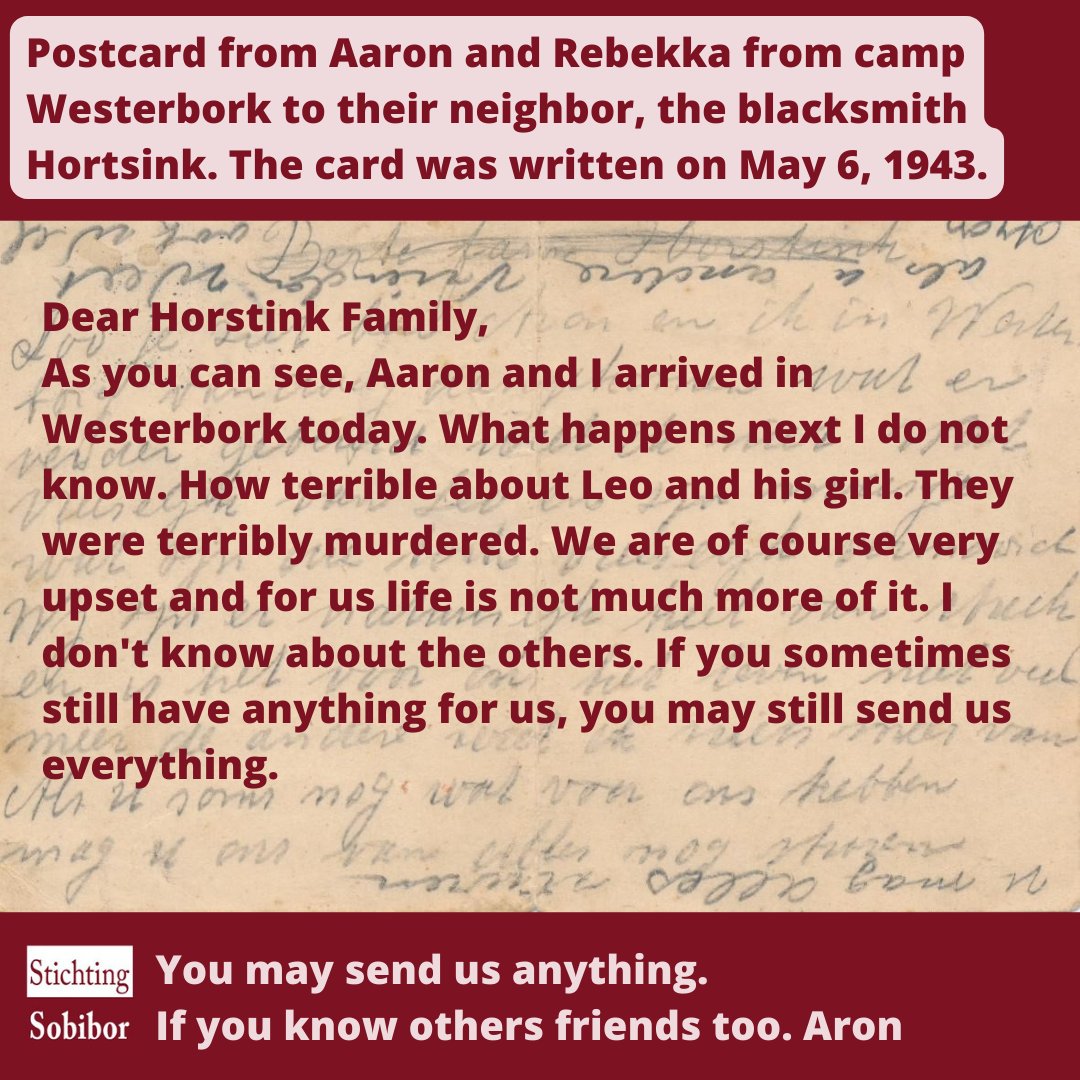

Aron and Bekka are murdered on May 14, 1943 in the gas chambers of Sobibor death camp upon arrival and are not among the 80 people selected as "Labor Jude.
Only one of these 80 does manage to survive: Jozef Wins. More about his testimony later. /7

Only one of these 80 does manage to survive: Jozef Wins. More about his testimony later. /7


• • •
Missing some Tweet in this thread? You can try to
force a refresh





